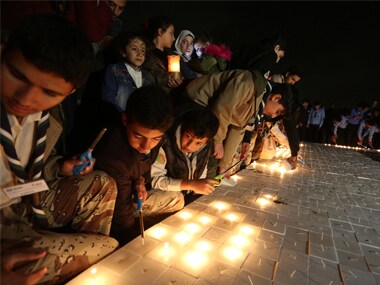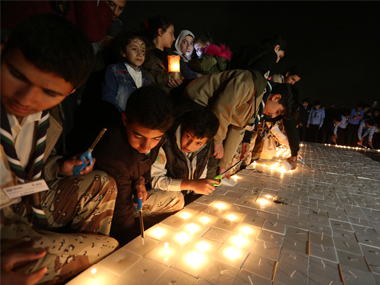Every year, Earth Hour is observed on the last Saturday of March at 8:30 pm. And while previously it brought the public out onto the roads to mark the hour, this year the famous environmental initiative is going digital as many countries are in lockdown. The coronavirus has brought about some fear and anxiety. It has brought a lot of death and grief for the ones who are left behind. It has brought uncertainty - we still don’t know if the worst is behind us or if it is in the future still. [caption id=“attachment_4404353” align=“alignleft” width=“380”]
 Representative image. AP[/caption] But it is also undeniable what the earth has been telling us during this lockdown. The rivers are clean, the sky is clear. From Italy to China, there are satellite images that show how much pollution has gone down within a month.
Representative image. AP[/caption] But it is also undeniable what the earth has been telling us during this lockdown. The rivers are clean, the sky is clear. From Italy to China, there are satellite images that show how much pollution has gone down within a month.
India AQI Levels
The lockdown has only been active for a week essentially, but the shutting down of factories and reduction in the number of vehicles on the road are already showing some results. Whether or not we head into community transmission is still unknown, but the AQI levels in New Delhi haven’t been this low in months. What used to be ‘hazardous’ meaning above 300, has now come down to ‘satisfactory’ (50-100) and even ‘good’ (0-50) in some parts. This just goes to prove that the earth and its environment need protection. And given the harmful effects of air pollution on our health , it is time we paid heed. When we come out of this lockdown, we’ll have the opportunity to change our ways and be more conscious of our decisions that impact the environment. Most of us will just pick up where we left off, it’s true. But remember how nice it felt to breathe in clean air during this time and know that even the smallest change counts. It also won’t be a selfless act - pollution causes so many health problems, from fatigue to asthma and bronchitis.
How to participate
All you have to do is turn the lights off at 8:30 pm for an hour. That’s all. The time is perfect for a candlelight dinner with your partner or a round of antakshari with your family. If you want to go a step further, you can encourage your friends and family to participate along with you, share the message on social media to inspire others and learn about how you can be more sustainable going forward. There are also live streams you can tune in to - visit earthhour.org for more ideas. We know everyone’s having a tough time already with the lockdown and COVID-19 - but coming together (even digitally) as a community in tough times is what will help us get through this. For more tips, read our article on Asthma _._ Health articles in Firstpost are written by myUpchar.com, India’s first and biggest resource for verified medical information. At myUpchar, researchers and journalists work with doctors to bring you information on all things health.
)